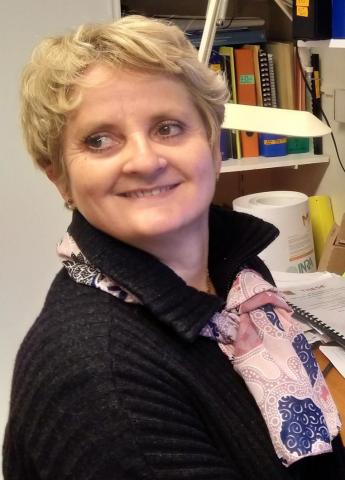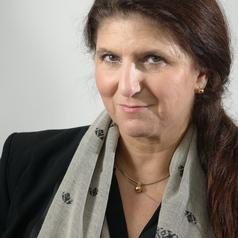
How Université Paris-Saclay contributes with Incuballiance to transforming researchers into entrepreneurs
Université Paris-Saclay supports the development of innovative projects with an entrepreneurial dimension. Two years ago, within the Incuballiance incubator and as part of the Poc in Labs call for projects programme, she created “Genesis Light”, a new tool to support technology transfer. Two researchers share their experience of this new programme and how it fits within their career as women entrepreneurs.
“Incuballiance” is the shared incubator of the Paris-Saclay cluster, created in 2005 by the region's higher education and research establishments and industrialists, of which Université Paris-Saclay is a founding member. In 2019, as part of the University's Poc in Labs call for projects, it launched the “Genesis Light” programme. A streamlined formula of the “Genesis Lab” - a training programme spread over two and a half months on a full-time basis and carried out within Incuballiance - which consists of facilitating technology transfers from research laboratories to the socio-economic world. It is led by François Many, Deputy Managing Director in charge of implementing the incubator's operations since 2013. A “serial entrepreneur”, who has himself created a number of start-ups in the field of information technology (IT).
“We enable researchers to understand how we move from invention to innovation.”François Many, Incuballiance |
Genesis Light aims to raise researchers’ awareness when it comes to business creation. “We enable researchers to understand how we move from invention to innovation,” Many says. Because if Poc in Labs is a tool for detecting projects in a premature phase, “Genesis Light” is the one that, if necessary, reveals an economic reality to researchers. “It is an indicator of the project's ability to meet a market. The job of a researcher is very different from that of a company director. The first is dedicated to technology, and the second to customer needs. This represents a paradigm shift,” he says. A minority of researchers make this change of perspective and become the CEO when they enter the creation phase of their start-up, and the others prefer to surround themselves with partners to provide them with the complementary skills they need.
Over the course of seven days of training over two months, four practitioners trained eight researchers in 2019, welcoming nine in 2020, and with 10 planned for 2021. The workshops focus on understanding and identifying markets. “We introduce them to the development of value propositions, the business model canvas, market segmentation and team composition. When a market is identified, some join the “Genesis Lab”. Then, “at the end of this training, some of them decide to create their start-up, and we then offer to support them in incubation for 24 months,” he says. This is the case of “Compa”, a project led by Sébastien Floquet, a researcher at the Lavoisier Institute of Versailles (ILV - Université Paris-Saclay, UVSQ, CNRS), and transformed into a start-up, whose mission is to help bee keepers reduce bee mortality and increase honey production. There is also “Fermentis”, a project led by Muriel Thomas, a researcher at the MICALIS Institute.

The testimony of Muriel Thomas, a researcher at the MICALIS Institute
Muriel Thomas, research director at the Institute of Food Microbiology for Human Health (MICALIS - Université Paris-Saclay, INRAE, AgroParisTech) works on microbiota, intestinal or respiratory, and their effects on health. This researcher managed to isolate a bacterium that can help undernourished people. With the help of snacks enriched with this bacterium, the aim is to help patients regain weight following heavy treatments such as chemotherapy, or the elderly. This bacterium of interest was isolated within the framework of a “Qualiment” financing programme labelled Carnot, with collaborators from Aurillac and the INRAE in Clermont-Ferrand.
For this project called “Fermentis”, this researcher is participating in the May and June 2019 session of Genesis Light. She would like to launch herself in the world of start-up creation. “I have filed several patents in recent years in order to transfer technology to industry, but a lot of things escaped me when assessing the option of creating a start-up,” Muriel Thomas comments. “Business model”, “market segmentation” and “incubation” are now part of her vocabulary. The training allows her to refine his project and to ask herself the right questions in order to make strategic choices. It also responded to a call for maturation projects from SATT Paris-Saclay to carry out the first developments necessary for technology transfer. “I also discovered that the entrepreneurial world was not as far removed from the world of research, as I initially thought, because it requires certain similar qualities: stubbornness and persuasiveness,” she says. “After all, in the laboratory we also make hypotheses, we validate them or not, we start again if necessary, we ask for financing, etc.” she says. Moreover, Muriel Thomas now uses some of the working methods she learned at Genesis Light in her research work. Such as defining the values, vision and objectives of a project prior to implementation.
A few months after this training, with the endorsement of her management and the encouragement of her team, she decided to go further in her introduction to the creation of start-ups by participating in the Genesis Lab. “Researchers rarely talk about an article before publishing it. On the contrary, the training taught me not to be afraid of failure, and to communicate about the project no matter what happens afterwards,” she says. As for becoming CEO of this potential start-up, Muriel Thomas does not want to for the moment: “I invest 30% to 40% of my time in this project as a scientific adviser, but I have not yet had enough of my laboratory work in my institute to want to leave it! I wish to pursue these two paths in parallel, because they fascinate me equally,” she says.
The testimony of Sylvia Cohen Kaminsky, from the Pulmonary Hypertension Laboratory: physiopathology and new therapies
Sylvia Cohen Kaminsky, researcher in the Pulmonary Hypertension Unit: Physiopathology and New Therapies (Université Paris-Saclay, Inserm), based at the PulmoTension reference centre for pulmonary hypertension, is taking part in the Genesis Light workshops in May and June 2019. Her interest in entrepreneurship is part of what she calls her “life project”: the therapeutic innovation project “NMDA receptors, Unexpected TargetS in pulmonary arterial hypertension”, now in the technological maturation phase (“NUTS-MAT”). It consists of identifying and validating a new therapeutic target and developing a transformative drug candidate for the curative treatment of pulmonary arterial hypertension (PAH). In addition, this future drug is an “intelligent” molecule that does not cross the blood-brain barrier, in order to minimise side effects. This treatment, used alone or in addition to current therapies, aims to ensure the long-term survival of patients. Today, PAH remains a rare and incurable disease, with a survival rate of three to five years after diagnosis.
This multidisciplinary project, in consultation with the fields of biology, chemistry and medicine, is being carried out in partnership with Mouad Alami of the laboratory Biomolecules: design, isolation, synthesis (BIOCIS - Université Paris-Saclay, CNRS), involved in the design and synthesis of the molecule, and Alain Pruvost, from the Laboratory for Drug Metabolism Studies (LEMM) within the Pharmacology and Immunoanalysis Department (SPI - Université Paris-Saclay, INRAE, CEA), in charge of studies on the distribution, pharmacokinetics and metabolic stability of the molecule. After receiving funding from the Laboratory of Excellence in Drug Discovery and Therapeutic Innovation (LabEx LERMIT), the French National Research Agency (ANR), and the Poc in Labs call for pre-maturation projects, the project has been receiving funding from SATT Paris-Saclay since 2017 for its maturation and technology transfer phase, and has been supported in this phase.
In 2019, Sylvia Cohen Kaminsky wondered about the best way forward for the continuation of the project, which is protected by three patents. “For this type of therapeutic innovation, there are two options: transfer the technology to the pharmaceutical industry, or create a start-up to drive clinical development,” she says. She then chose to follow the “Genesis Light” training course in May and June 2019, operated by Incuballiance, to find some answers. “Thanks to Genesis Light, I realised that my project had a strong potential for the creation of start-ups. I learned a lot of new terms, such as 'business plan', 'business model' and 'pitch'. It was a real trigger, this knowledge gave me the confidence to go into entrepreneurship,” she says. In January 2020, the project team will take part in “Team-up for Start-up”, a pitch opportunity supported by the Banque publique d’investissement (BPI), where it will be noticed by a “venture builder”, an investment fund that builds companies and finances them. The BPI is currently conducting a thorough assessment of the project's potential and risks and will make a final decision on whether or not to include the project in its portfolio in the first quarter of 2021. At the same time, Sylvia Cohen Kaminsky continues on the path of entrepreneurship and, since October 2019, has been attending the Life Sciences Leadership School (LS-Lead) training, dedicated to entrepreneurship in life sciences and health. “I am well aware that my profile is not that of a company director, which I had already anticipated and validated during the Genesis Light workshops. But this MBA allows me to support the creation of our start-up and to be in a position to advise its future Chief Executive Officer (CEO) on all strategic and scientific decisions, in order to support the development of my therapeutic innovation project, i.e. right up to the patient's bedside,” she says. She is also awaiting an agreement from her employer, the CNRS, to devote 50% of her time to this start-up, within the framework of the Innovation Pact law.

